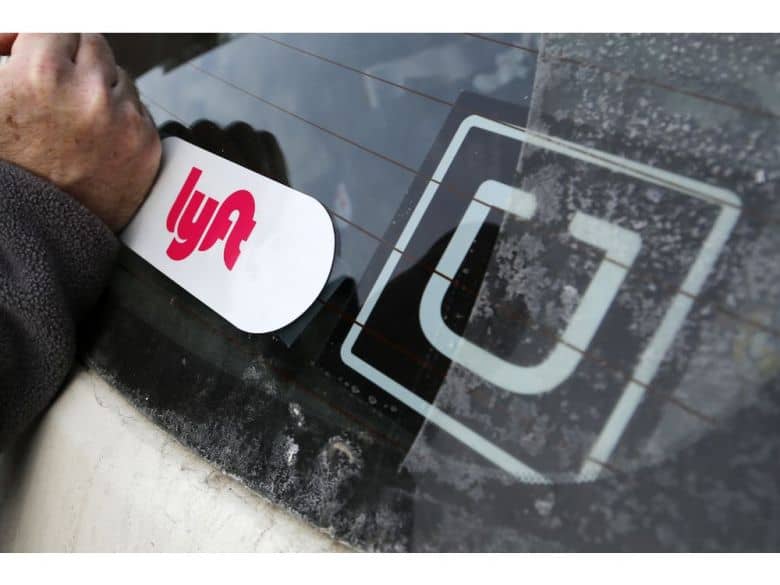
If they do go public, it remains to be seen whether they do so with a splash, or a behind-the-scenes ripple
Silicon Valley’s most valuable unicorns are moving toward the public markets this year, despite recent months’ stock market turmoil and the ongoing U.S. government shutdown. Which ones will make a grand entrance, which will languish and which will stay private? After years of will-they-or-won’t-they toying with investors’ expectations, here are some predictions for tech’s most closely watched companies in what promises to be a very eventful 2019.
Uber and Lyft
Barring total financial or governmental collapse, Uber Technologies Inc. and Lyft Inc. look destined to go public this year. Many of the pieces are already in place. Both companies have picked their bankers. In Uber’s camp, there’s Morgan Stanley, with Goldman Sachs Group Inc. expected to play a supporting role. And for Lyft, JPMorgan Chase & Co. is leading the public offering, along with Credit Suisse Group AG and Jefferies Financial Group Inc.
That doesn’t mean there won’t be bumps in the road, though. After both companies filed confidentially to go public on Dec. 6., both are now waiting for feedback on their paperwork from the Securities and Exchange Commission. But if you call the regulator right now, an answering machine will tell you it’s closed for business and not really listening to voicemails. Until the government reopens, Uber and Lyft are in a lurch. Whether and how much the shutdown delays their timetable will depend on how much feedback the SEC has for them and when it is sent back.
But Washington hijinks are unlikely to derail the ride-hailing giants’ march toward IPO. That’s partly because both companies need a steady stream of investor cash to keep operating. If they didn’t list, they would probably need to tap the private markets again. Another key reason for Uber is that, when it raised money from SoftBank last year, the company agreed to free up some shareholders to sell on the private markets if it didn’t go public in 2019. That’s a situation the startup probably wants to avoid. And finally, the jockeying between Uber and Lyft only ups the competitive pressure for each to list before the other sucks up all the oxygen and investor money.
Slack
Slack Technologies Inc. has the name recognition of a social media company, but the reliable revenue stream of business software. The company is clearly targeting a public offering, and has hired Goldman Sachs for the job, according to a person familiar with the matter who requested anonymity because the agreement is private. But a 2019 IPO is far from a sure thing.
For one, it’s a much younger service than the other companies on this list. While Slack was founded in 2009 as a gaming company, it didn’t turn into a message application until 2014. Second, Slack isn’t as money-hungry as Uber or Lyft. While its financials aren’t public, the messaging app is likely a leaner business than Uber, which has consistently lost about US$1 billion a quarter.
On the other hand, Slack has always been a precocious company. With a US$7.1 billion private valuation, it’s almost worth as much as public messaging app Snap Inc. Last year, Slack filled out its board with independent directors and hired a chief financial officer. Never say never.
Airbnb
Airbnb Inc. is another big-name San Francisco unicorn in the mix for an IPO this year. For a while, the home-sharing company’s IPO plans seemed to be on ice: The startup, last valued at US$31 billion, fell out of love with its CFO, Laurence Tosi, in 2018, in part, over a disagreement with the founders over when to go public. Then, in November, Airbnb hired another high-profile CFO — Dave Stephenson from Amazon. That’s certainly a move back in the direction of a public listing.
Will it happen this year? Or, since the company didn’t raise money last year, will it turn back to the private markets for additional cash? It’s worth noting that Airbnb is the rare high-flying unicorn that hasn’t taken a big cheque from SoftBank.
If I had to guess, I’d say that Airbnb wants a once-in-a-generation public offering. If it doesn’t want to go public in Uber’s shadow, it would likely need to wait until 2020, once Uber has had its turn. On the other hand, Airbnb is facing more and more competition from publicly traded Booking Holdings Inc. Airbnb may want a public stock to make it easier to acquire companies and piece together a more complete travel offering.
Palantir and Pinterest
The sheen may have worn off these two unicorns a while ago, but each year investors’ IPO dreams resurface before being crushed. Maybe 2019 is different? Palantir, for its part, is finally hiring salespeople, an unusually conventional move for the contrarian company. Morgan Stanley is advising Palantir, though that’s not the same as getting hired for a public offering. Palantir’s public offering documents would be among the most exciting to read because Peter Thiel’s 15-year-old startup has long been such a financial mystery.
Pinterest, on the other hand, is struggling to carve out a niche as social media stocks crumble. Pinterest sees itself as something much different from Snapchat or Instagram. People don’t always use its service daily, but when they do, they’re often thinking about buying things. The startup was on track to hit US$700 million in revenue last year, the New York Times reported. Still, social media stocks with better user engagement have tanked, leaving Pinterest vulnerable.
Direct listings
The last thing to consider here is not only if and when this backlog of high-profile unicorns will go public, but what route they’ll take. Will they do the standard IPO, or will they follow Spotify’s example and list without a fancy roadshow? Uber and Lyft appear to be doing it the old-fashioned way, but Airbnb and Slack reportedly considered a different path.


